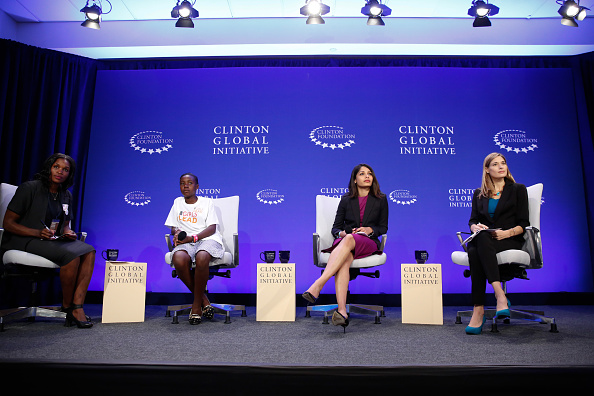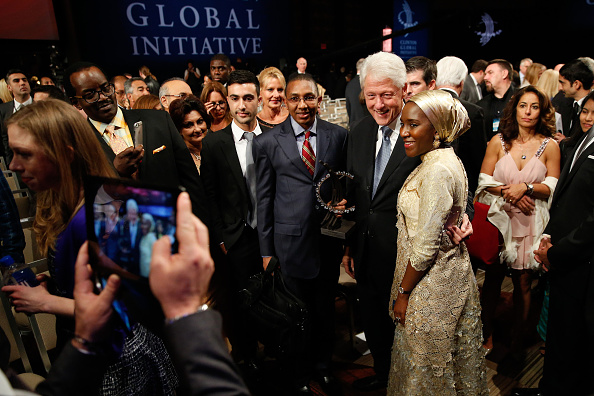The 11th Clinton Global Initiative (CGI) opened with a feature strategy session called “The Economic Implications of Gender-Based Violence.” The damaging economic consequences of gender inequality are not generally at the forefront of discussions on gender-based violence. One might consider issues of GDP or market growth as inappropriate to include in a discussion about individual and social harm, yet it’s all undeniably intertwined.

(L-R) Anu Madgavkar, Ashley Judd and Gary Cohen panel Breakout Session: The Economic Implications of Gender-Based Violence – 2015 Clinton Global Initiative’s Annual Meeting (Photo by JP Yim/Getty Images)
The empirical data presented at the session through the highly-anticipated MGI report showed that the pursuit of growth functions as a gender equalizer. Women are not the only beneficiaries of gender equality. Entire populations benefit from the shift. On the other hand, the impact of the marginalization of women goes beyond the moral, human cost to an economic one, at a staggering $12tn loss to the global economy.
Nobel Laureate Mohammed Yunus presented further evidence of the positive social and economic impact of labor market equality with a panel titled the “Future of Gender-Investing.” Grameen Bank’s focus on lending to poor women produced immediate benefits, as women often invested back into their communities and their children. One result of greater economic opportunity for women was an increase in social mobility and political participation, which, in the end, benefits all.

Actress and Producer of Girl Rising, Freida Pinto takes part in a panel discussion at The Future of Girl’s Education session during the fourth day of the 2015 Clinton Global Initiative’s Annual Meeting (Photo by JP Yim/Getty Images)
Despite the many positive outcomes of economic equality, social attitudes and societal norms remain a major hurdle for women’s advancement. Equal economic participation cannot occur without addressing the cultural constraints that stagnate progress. Without an emphasis on such things as girls’ education, employment of women, and the burden of unpaid housework, to name a few, creating economic equality will be a slowly grinding process. Therefore, the case for purposeful action tempered with cultural sensitivity is essential to economic empowerment.

